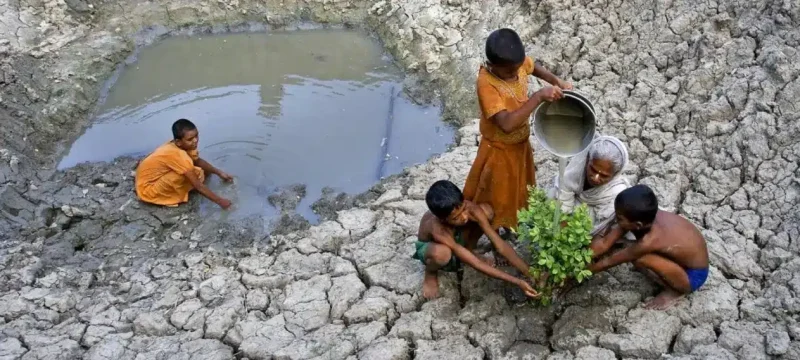Experts have emphasized the significant challenges faced by vulnerable communities due to climate change-induced natural disasters, stressing the need for comprehensive policies to mitigate their impact, particularly on women and the poor.
Communities, especially marginalized ones, bear the brunt of events like droughts and floods, leading to increased health risks such as undernutrition and malaria. Experts highlighted the intricate link between human health and environmental hazards, calling for urgent strategies to address these issues comprehensively. They noted that for many impoverished populations, adapting to climate change is not a choice but a harsh reality.
Research indicates that the poor, particularly in developing nations, are disproportionately affected by climate variability and change. Women, in particular, often lack awareness of community initiatives, policies, and strategies for climate change adaptation. To achieve successful public participation in climate change adaptation policy development, experts recommend inclusive systems involving all stakeholders, including vulnerable groups like women.
Also Read :Pakistan’s Annual Loss: $4 Billion from Climate Change
It’s crucial to mainstream resilience-building measures focused on women into policymaking to reduce their exposure to climate change impacts, especially floods. Engaging marginalized communities, including women, in climate policymaking and implementation processes is essential for building climate resilience. Technological advances in agriculture and rapid industrialization have significantly polluted natural resources like land and water, posing environmental hazards affecting human health.
The environment profoundly affects human health by exposing people to harmful carbon agents directly or indirectly disrupting life-sustaining ecosystems. Policymaking must prioritize huge poor populations to address environmental and health concerns effectively. Reports estimate that millions of deaths annually are due to preventable environmental causes, with developing countries bearing the highest burden.
Women and children are disproportionately affected, yet they often remain marginalized in climate resilience efforts. When provided equal access to resources, women can significantly increase agricultural yields and reduce world hunger. Rising cases of asthma and undernutrition globally are alarming, with environmental degradation contributing to the spread of diseases like malaria and cholera.
Severe weather events like storms and heatwaves are increasingly impacting human health, necessitating community involvement in policymaking. In related news, the Ministry of Climate Change has pledged full support for the upcoming UN-led 29th session of the Conference of the Parties in Baku, Azerbaijan, emphasizing the importance of successful organization and negotiations at the event.









